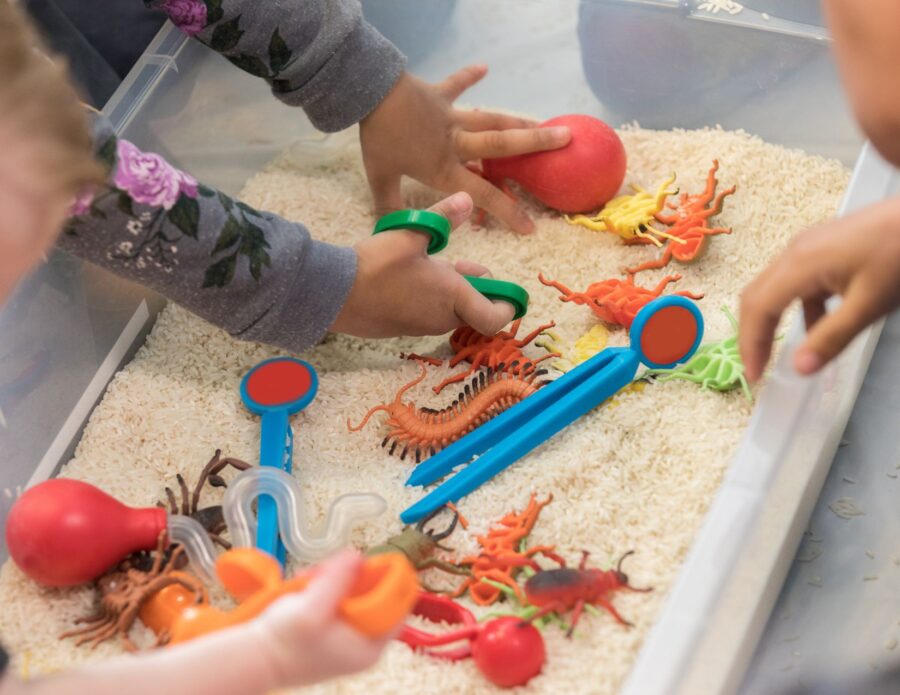Over the four years that I had Gi, there were tons of stories and pictures from both of her parents of her independence and classroom successes that had transferred to her home and community environments. Her ability to sit and wait at doctor’s appointments, the ability to sit through a King’s game, interacting, hugging, and sharing with her sisters, and so much more, showed that Gi’s disability did not impede her families ability to be a family. In fact, according to her parents, Gi’s disability added to their family’s dynamics. What do I mean by that?
Gi’s sisters have learned and continues to learn life lessons that a lot of children learn later in life or not at all. They have learned that disability does not mean disabled, but in fact, means abled. They have learned about love, compassion, empathy, and to stand up for those who are “different.” They learned what it means to share, to compromise, to accept. Gi teaches them, and they, in turn, teach Gi. A disability should never be viewed as a distraction, or a take away from the family. After all, if you ask Gi’s sisters, my guess is they view her as any other big/little sister; one that they love to the ends of the earth, one that gets on their nerves one minute, and loves them to death the next, a sister that they would not ever trade for another! But, there is another side! I have addressed the positives, but I would be remised if I did not address the challenges of having a sibling with a disability in the home!
Depending on the age of the sibling, concerns could be feelings of guilt (being spared a disability), embarrassment (of a sibling’s behavior or appearance in front of friends), anger or jealousy (over the amount of attention the sibling receives), pressure (to make-up for a sibling’s disability), or caregiving (especially if it conflicts with social plans). Now, if you look at these issues, they are actually issues all siblings and families deal with, whether a child has a disability or not: how about the star basketball player, star student, or smart whiz kid. The child who shares mom and/or dad’s passions versus the sibling who does not?
These are issues that every family with multiple children deal with. Not just those families who have a child with a disability. It is not the disability that determines these issues and how they are dealt with, it is life itself. It is up to the parent(s) to address these issues head on and to do like all parents, their best to raise healthy, happy, well-rounded children who will grow to become those same adults. How can you support the siblings?
> Set The Same Expectations For All
Of course, the child with the disability expectations might look a little different from their sibling(s), but not by much! Foundational expectations should be the same across the board! The expectation to listen, to follow direction, to sit when needed, to keep hands to self, to walk not run, to not talk back, to not hit, etc. To treat their sibling’s toys, possessions, rooms, etc., with respect. To share when appropriate and to learn that everything does not belong to them just because of their disability! Your child with the disability is nor more special then your child(ren) without!
> Create Safe Spaces for Expression
Allow honest conversations without judgment. Validate their feelings, even the tough ones.
> Give Individual Attention
Spend one-on-one time with each sibling. Let them choose their own activities and be very intentional in that moment!
> Educate in an Age-Appropriate Way
Help them understand the disability in simple terms. Encourage empathy without forcing maturity.
> Include Them Without Overburdening
Involve them in family routines when appropriate. Avoid giving them excessive caregiving duties.
> Watch for Emotional Shifts
Look out for signs of stress or anxiety. Consider professional support if needed (e.g., child counseling, sibling support groups). Every family is unique. Seeking help is not a sign of weakness—it’s a powerful way to care for yourself and your family.
Parents of children with disabilities and their sibling(s) often face a range of unique and complex challenges, not only related to the child with the disability but also in how it affects the whole family dynamic, including relationships with siblings. As parents, be very intentional with the siblings and tackle issues head on! And always, always involve all of your children in everything; trips, vacations, family gatherings, etc. Never separate the two!!! Once you do, you are setting a tone of “separate!”



